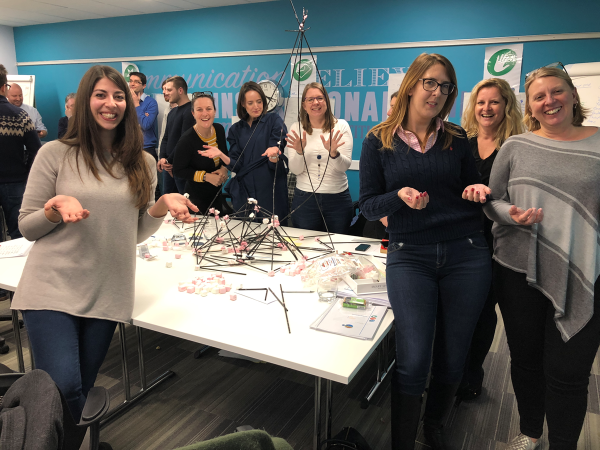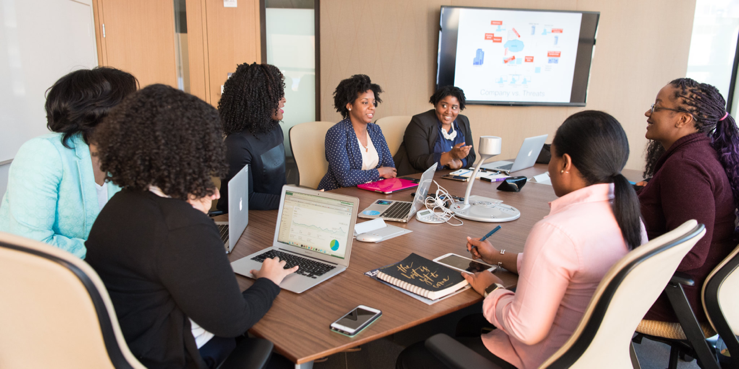How to improve team performance

Teams are the most powerful units of performance in an organisation. When teams are working effectively and at their best, the results are exponential. Imagine each individual in the team harnesses only 10% more of their potential, multiplied by the number of team members, the potential of the team increases significantly. These 5 steps are key to improving team performance: Diagnostics Start from understanding what you want to achieve as a team and where you are now. Are there any gaps that need reviewing? There are tools that can help you assess where your team is at and whether there are underlying tensions and lack of trust between colleagues. These tools could be motivational or personality profiles and 360 feedback assessments. Trust Now that you know where you want to be, you can focus on how to build trust, which is the foundation for any successful team and any real progress to improve collaboration.
Start from understanding what you want to achieve as a team and where you are now. Are there any gaps that need reviewing? There are tools that can help you assess where your team is at and whether there are underlying tensions and lack of trust between colleagues. These tools could be motivational or personality profiles and 360 feedback assessments. Trust Now that you know where you want to be, you can focus on how to build trust, which is the foundation for any successful team and any real progress to improve collaboration.  When people feel at ease and comfortable with each other, effective and honest communication can occur. Understanding what different team members value can be really helpful to better relate to others. You can look at individual motivational drivers, building self-awareness, which can subsequently be shared with the team to find a collective “why” that the team can identify with as a whole. Celebrate the similarities and the differences that make up the group. Honest communication Honest communication can only take place once the level of trust is built. Be clear on what you like and what you don’t like, what are other people’s preferences? Some people like to know all the details, other prefer only the top line. Some prefer to converse formally; others will be more outgoing and enthusiastic.
When people feel at ease and comfortable with each other, effective and honest communication can occur. Understanding what different team members value can be really helpful to better relate to others. You can look at individual motivational drivers, building self-awareness, which can subsequently be shared with the team to find a collective “why” that the team can identify with as a whole. Celebrate the similarities and the differences that make up the group. Honest communication Honest communication can only take place once the level of trust is built. Be clear on what you like and what you don’t like, what are other people’s preferences? Some people like to know all the details, other prefer only the top line. Some prefer to converse formally; others will be more outgoing and enthusiastic.  Flex your style to get your message across effectively in a way that is appreciated by your interlocutor. If they prefer to know the big picture, don’t give them the details they don’t need. If they prefer to have evidence of what you are telling them, make sure you are expressing the facts in a logical way. Personality profiles that reveal these preferences can be very useful to understand people’s natural way of processing information and the way they are likely to behave in certain situations. Honest communication minimises the risk of conflict, makes communication more effective and enables the team to address issues respectfully. Commitment and accountability
Flex your style to get your message across effectively in a way that is appreciated by your interlocutor. If they prefer to know the big picture, don’t give them the details they don’t need. If they prefer to have evidence of what you are telling them, make sure you are expressing the facts in a logical way. Personality profiles that reveal these preferences can be very useful to understand people’s natural way of processing information and the way they are likely to behave in certain situations. Honest communication minimises the risk of conflict, makes communication more effective and enables the team to address issues respectfully. Commitment and accountability The next challenge for a team is to gain mutual commitment from everyone involved and to hold people accountable, so that action is being taken and the team is moving forward and in the same direction. When people feel they have been heard, even though the final decision may be different, they will still feel commitment because their opinion has been taken into consideration. If everyone has been involved in the conversation, when a purpose and a goal have been agreed, the team will hold each other accountable.
The next challenge for a team is to gain mutual commitment from everyone involved and to hold people accountable, so that action is being taken and the team is moving forward and in the same direction. When people feel they have been heard, even though the final decision may be different, they will still feel commitment because their opinion has been taken into consideration. If everyone has been involved in the conversation, when a purpose and a goal have been agreed, the team will hold each other accountable.  Results You can see the magic of a team coming together when there is collective accountability and people know when to challenge, when to contribute and when to take responsibility. Measuring results is about determining the hard, financial ones, as well as the soft ones. Motivation can be measured before and after and open feedback can be very useful as well. Conversations to listen to: Visit our team performance page to watch our three videos on how teams can improve,evaluate and achieve high performance
Results You can see the magic of a team coming together when there is collective accountability and people know when to challenge, when to contribute and when to take responsibility. Measuring results is about determining the hard, financial ones, as well as the soft ones. Motivation can be measured before and after and open feedback can be very useful as well. Conversations to listen to: Visit our team performance page to watch our three videos on how teams can improve,evaluate and achieve high performance



